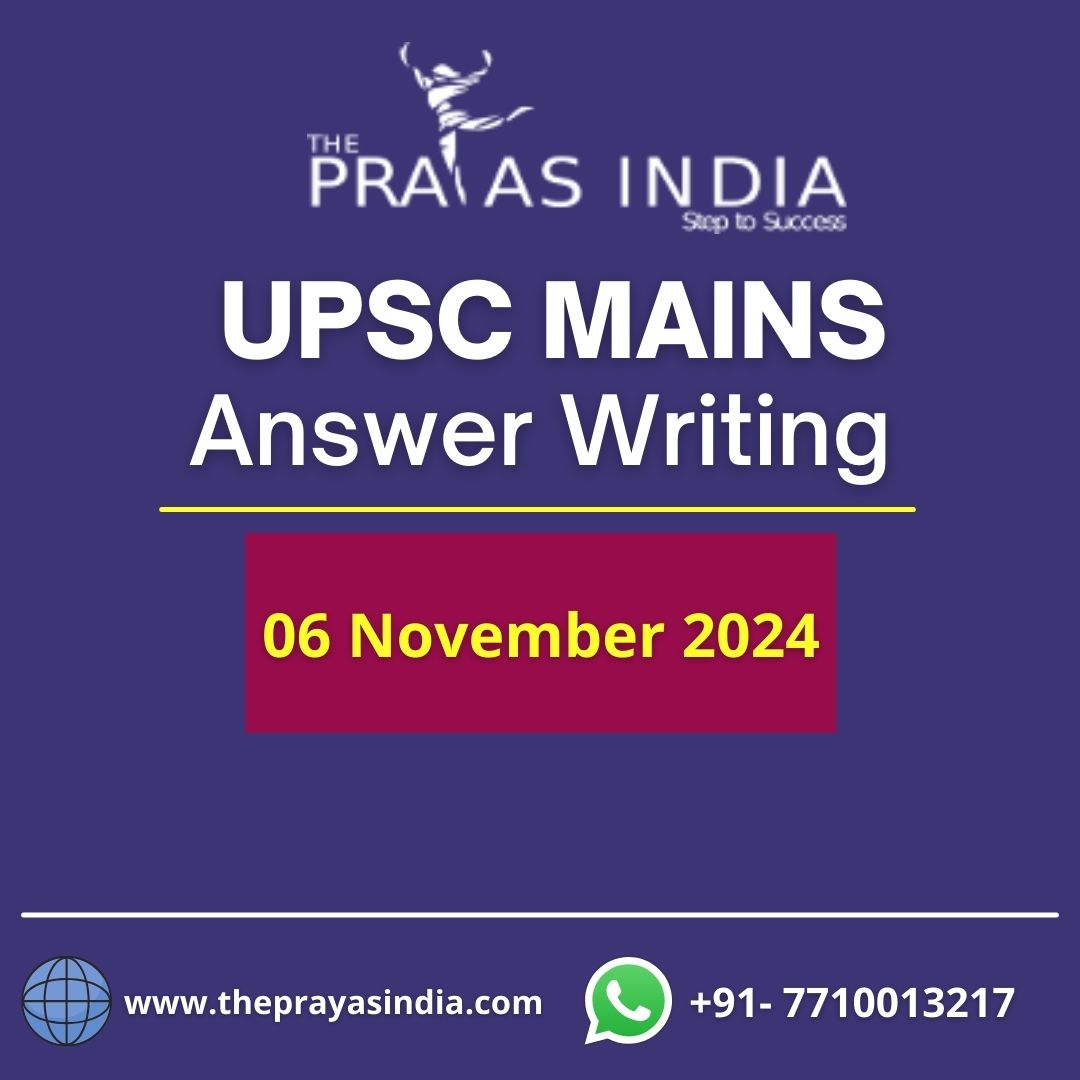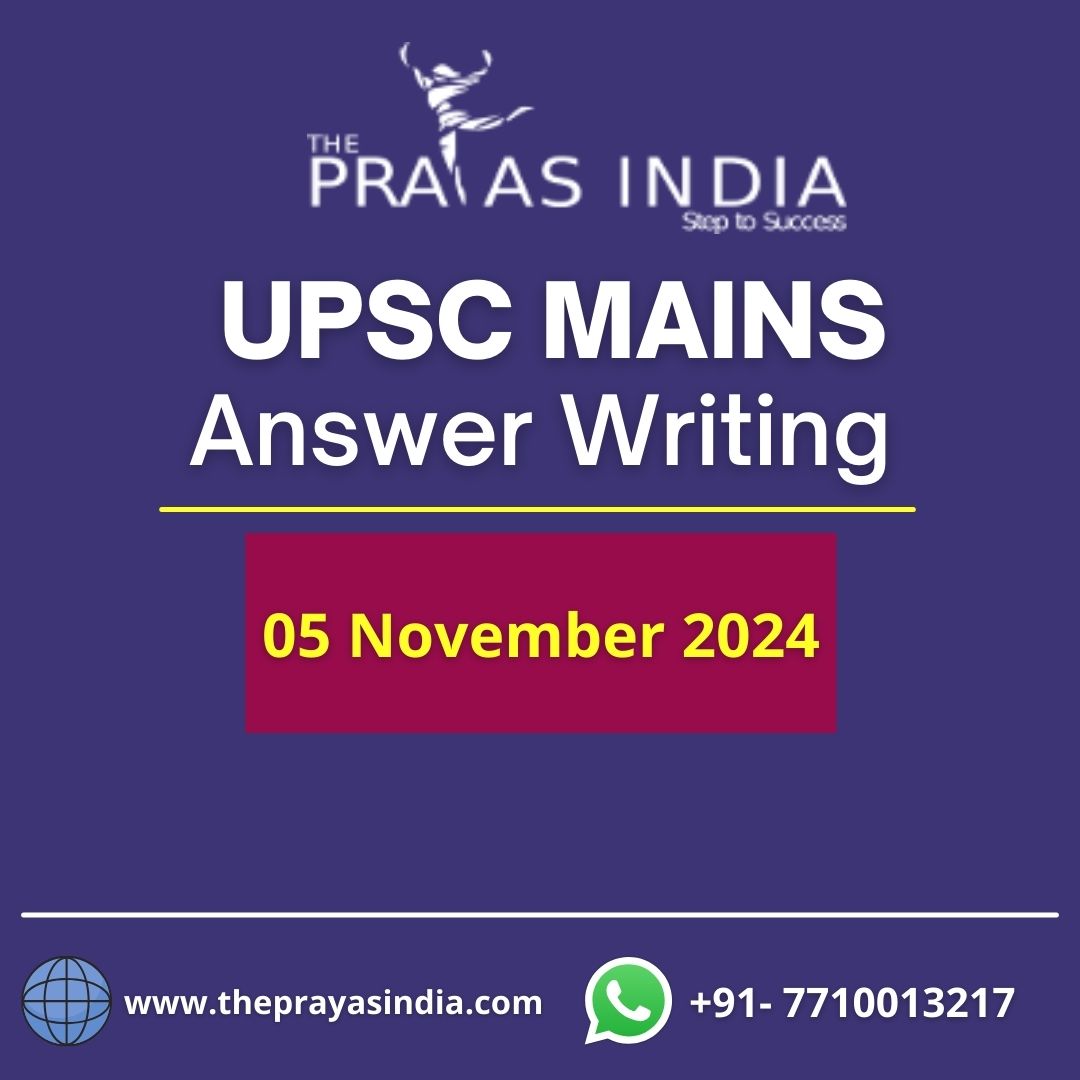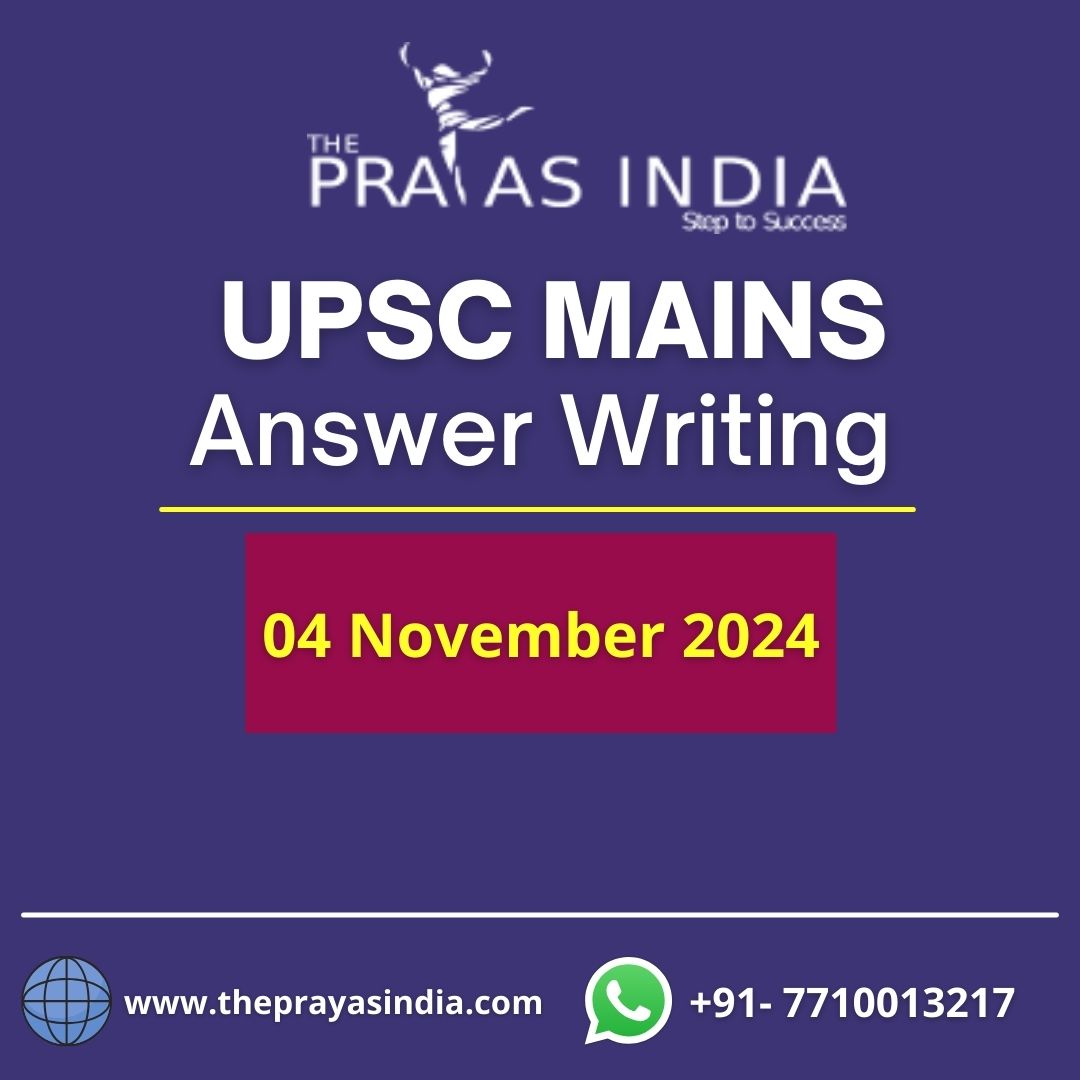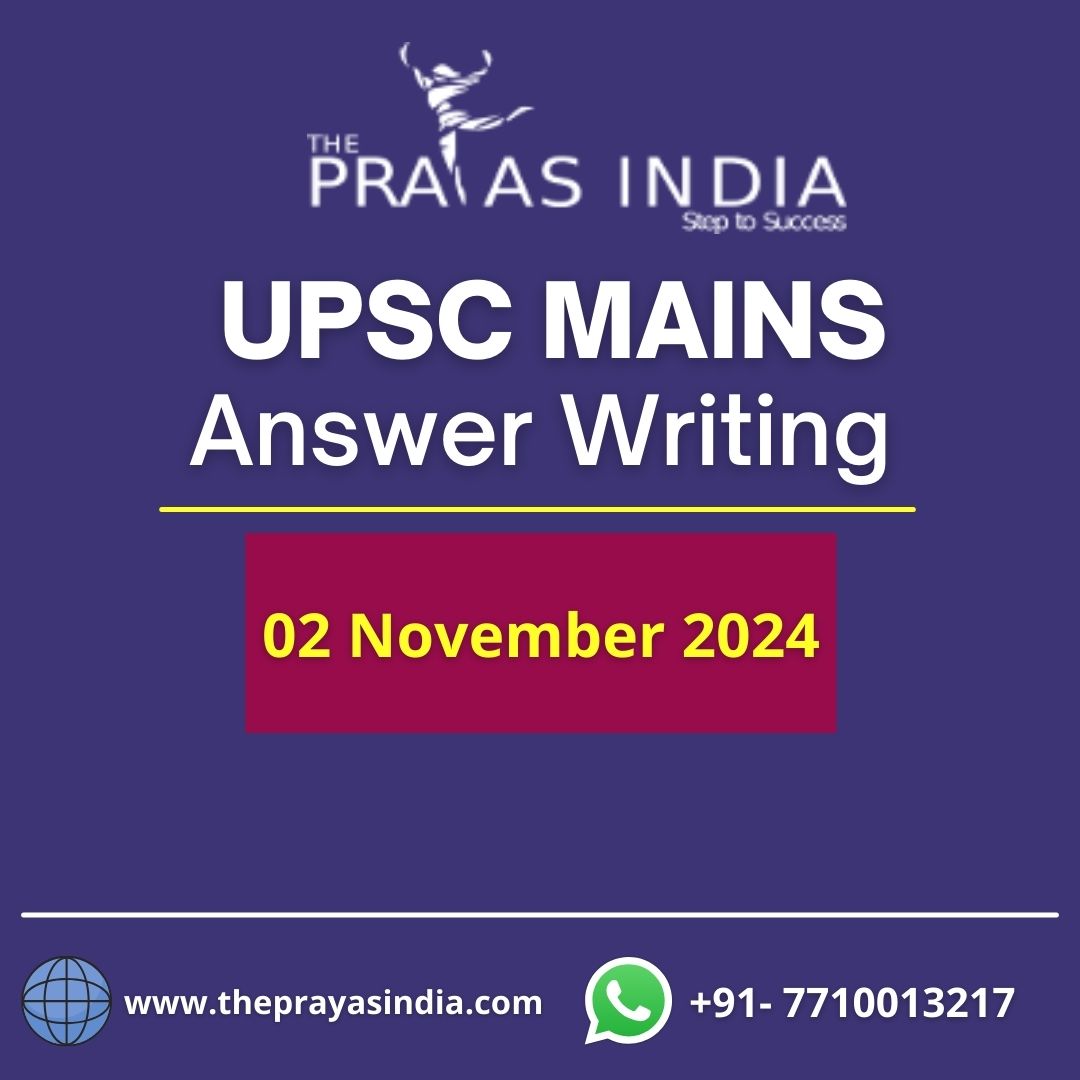MAINS DAILY QUESTIONS & MODEL ANSWERS
Q1. Describe some of the features of the Light Combat Aircraft. (250 Words)
Paper & Topic: GS III Internal Security of India
Model Answer:
- The 5.8-ton LCH is a “light” class, combat-oriented helicopter.
- It has a 550 km range and a top speed of 268 kmph, allowing it to run continuously for more than three hours. It operates up to 20,000 feet in the air.
- It is powered by two French-made Shakti engines.
- The pilot and co-pilot share a seat, allowing for a more streamlined design and a smaller fuselage (i.e., one behind the other arrangement). The armament system is controlled jointly. pilot’s
- Because it is made of radar-absorbing material, it has a lower radar signature. A countermeasure dispensing system shields it from missile infrared seekers.
Why is it significant?
- As the first attack helicopter to set foot on Siachen, the highest battleground in the world, the LCH created history.
- Only this particular helicopter is able to deliver fuel and weapons while landing and taking off at a height of 15,000 feet. Therefore, deployment along the LAC is appropriate.
- As far as combat helicopters go, it is the lightest one ever made.
- Currently, 45% of the population is made up of Native Americans, but estimates for the future show that this proportion will increase.
- Given how slowly the defence acquisition system operates, the LCH’s induction is a remarkable accomplishment.
Q2. What is the significance of clean cooking fuel. What are some of the government initiatives in this regard.
Paper & Topic: GS III à Environmental Conservation
Model Answer:
- Polluting cooking fuels are being used by fewer and fewer individuals throughout the world. However, 2.6 billion individuals still lack access to clean cooking. In Sub-Saharan Africa, traditional biomass fuels are used by almost 80% of the population. The level of dependence is still quite close to 50% in India as well.
Why is it so important to cook with clean fuel?
- One of the criteria in the NITI Aayog-developed National Multidimensional Poverty Index, which will be made public in 2021, is the inability to obtain clean cooking fuels.
Fuel for clean cooking is related to:
- lowering the amount of indoor pollutants.
- enhancing the general wellness of mothers and children through enhancing health metrics.
- achieving environmental goals.
What types of actions does the government take?
Pradhan Mantri Ujjwala Yojana, or PMUY:
- This programme, which went into effect in 2016, significantly accelerated the switch from traditional fuels to LPG.
- 8 crore low-income women were able to obtain LPG connections through PMUY phase I without having to make a deposit.
- In accordance with PMUY phase II, the beneficiaries also received free LPG hookups and stoves in addition to a free initial refill.
Under this objective, numerous measures have been made over time to boost LPG consumption, including:
- 200 rupees off for 14.2 kilogramme of refill.
- The annual maximum for refills is 12.
- There is a double bottle connection (DBC) option for 5 kg.
- 5 kg should be substituted for 14.2 kg.
- A maximum of three free refills are available in 2020 for each recipient of the PM Garib Kalyan Package.
Natural Gas Piped:
- Because PNG is more economically viable than LNG, the government is actively promoting it.
- As an illustration, consider the National Gas Grid, which is now under construction.
Promote Electricity:
- The Union Power Ministry started this campaign in February 2021 to promote EVs and electric cookery.
- It might result in an annual saving of Rs. 8 crore on import expenses.
Indra Nutan:
- It is a solar-powered cooking stove that the IOCL and the Union Ministry of Petroleum and Natural Gas created (Indian Oil Corporation Limited).
- To lessen the need for gas, this fixed, rechargeable indoor cooking platform was unveiled in June 2022.
- It functions in a variety of ways, making it a dependable solution whatever the weather:
- online and entirely solar-powered.
- combining solar energy with a different energy source.




